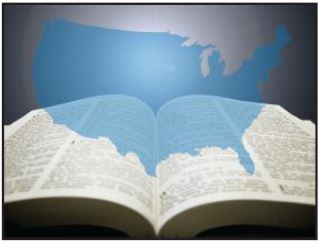Study finds religion losing influence in American Society
By Nisa Islam Muhammad -Staff Writer- | Last updated: Dec 17, 2019 - 1:53:49 PMWhat's your opinion on this article?
American views about religion are changing, according to a 2019 Pew Research Center survey.
Researchers found a “large majority of Americans feel that religion is losing influence in public life.” The survey stated that while some say this is a good thing, many more view it as a negative development, reflecting the br

|
Simultaneously, “U.S. adults are resoundingly clear in their belief that religious institutions should stay out of politics. Nearly two-thirds of Americans in the new survey say churches and other houses of worship should keep out of political matters, while 36% say they should express their views on day-to-day social and political questions,” the survey added.
The decline in religion’s influence on American society was met with sorrow by about four in 10 respondents including a majority of Christians, while fewer than two-in-ten say they think religion is losing influence in American life and that this is a good thing.
Rev. Dr. Randy Short, community outreach director for the Washington, D.C.-based Good Ground Good Life, explained his view on religion’s growing lack of influence. “The emphasis is on the accumulation of money, personal gain, fame, the accoutrements of success so there’s an explosive amount of affluence among religious figures,” he said. The narcissism observed in secular society is even greater in the religious world, argued Rev. Short.
“In the Islamic tradition, whether its practiced or not there’s a pronounced insistence on zakat (charity), that you look out for the poor. The same thing exists in the Christian tradition,” he added.
The Pew research findings are from a national survey of 6,364 U.S. adults conducted online from March 18 to April 1, 2019. The survey is part of an ongoing effort by the center to explore the role of trust, facts and democracy in American society. The survey also asked how much respondents trust clergy to provide various kinds of guidance, what messages Americans receive from their clergy about other religious groups, how satisfied they are with the sermons they hear, and how close they feel to their religious leaders.
“Church is becoming a polarizing experience in America,” Student Minister Jamil Muhammad of the PG County, Maryland Study Group of the Nation of Islam. “If you are in church you believe you are doing good but if you are not in church you don’t believe the church people are doing any good,” he explained.
“The Honorable Minister Louis Farrakhan reminds us that 11:00 on Sunday is the most segregated hour of the week. It is as true today as it was when Dr. King first said it in 1960. Black people are in church trying to do the will of God. The White church tends to be bulwarks of opposition to change. They believe they are doing good in society, but their actions and teachings serve to maintain the status quo,” said Student Min. Muhammad.
“ Minister Farrakhan gives us an activist practice of our religion. We put hands on where problems exist in our community,” he added, referring to the Honorable Minister Louis Farrakhan.
Other key findings of the survey include:
▪ Most adults who attend religious services a few times a year or more describe themselves as having at least a “somewhat close” relationship with the clergy at their place of worship, although respondents are much more likely to say they have a “somewhat close” relationship with their clergy (50%) than a “very close” one (19%). About three-in-ten say they are not close with the clergy at their congregation (29%). Just 8% of Catholics say they are very close with their clergy, a much lower share than in any other major U.S. Christian group analyzed.
▪ Many U.S. adults hear messages about religious groups other than their own from their clergy or other religious leaders. About four-in-ten religious service attenders have heard their clergy speak out about atheists (43%), while slightly fewer have heard clergy speak out about Catholics or Jews (37% each). About one-third of attenders say they’ve heard their clergy mention evangelical Christians (33%) or Muslims (31%). In terms of the types of messages congregants are hearing from their clergy, the messages about atheists tend to be more negative than positive, while the sentiments toward Jews are mostly positive.
INSIDE STORIES AND REVIEWS
-
-
About Harriett ... and the Negro Hollywood Road Show
By Rabiah Muhammad, Guest Columnist » Full Story -
Skepticism greets Jay-Z, NFL talk of inspiring change
By Bryan 18X Crawford and Richard B. Muhammad The Final Call Newspaper @TheFinalCall » Full Story -
The painful problem of Black girls and suicide
By Charlene Muhammad -National Correspondent- » Full Story -
Exploitation of Innocence - Report: Perceptions, policies hurting Black girls
By Charlene Muhammad -National Correspondent- » Full Story -
Big Ballin: Big ideas fuel a father’s Big Baller Brand and brash business sense
By Bryan Crawford -Contributing Writer- » Full Story






 Click Here Stay Connected!
Click Here Stay Connected!








